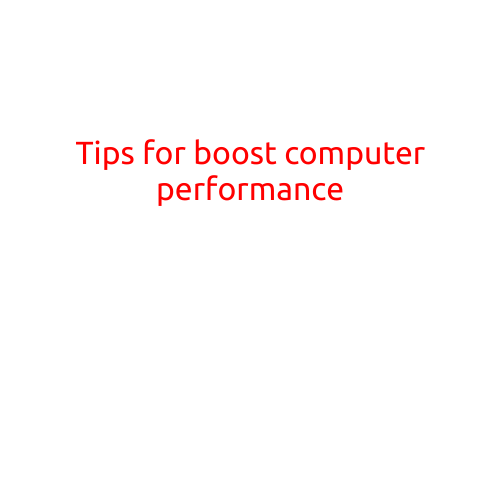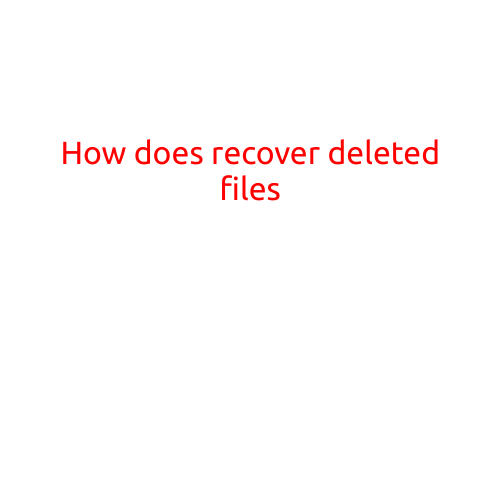
Tips for Boosting Your Computer Performance
Is your computer running slow and sluggish? Are you tired of waiting for programs to open and tasks to complete? Don’t worry, we’ve got you covered! Here are some simple and effective tips to help boost your computer’s performance:
1. Update Your Operating System and Software
Make sure your operating system, browser, and other software are up-to-date with the latest patches and updates. This will not only ensure security but also improve performance.
2. Close Unnecessary Programs
Do you have a lot of programs running in the background? Closing them can help free up system resources and improve performance. Look for programs that you don’t need and close them.
3. Disable Startup Programs
Many programs automatically start when you turn on your computer. Disable any unnecessary programs to improve startup time and overall performance.
4. Upgrade Your RAM
RAM (Random Access Memory) is one of the most important factors in computer performance. If your computer is low on RAM, consider upgrading to a higher capacity.
5. Use a Solid-State Drive (SSD)
If you have a traditional hard drive (HDD), consider upgrading to a solid-state drive (SSD). SSDs are much faster and can improve overall performance.
6. Delete Temporary Files
Temporary files can take up a lot of space on your hard drive and slow down your computer. Look for files with the .tmp extension and delete them.
7. Defragment Your Hard Drive (if necessary)
If you have a traditional hard drive, defragmenting it can help improve performance. This is especially true if you have a lot of large files or programs.
8. Clear Browser Cache and Cookies
Clearing your browser cache and cookies can help improve browser performance and speed up page loading times.
9. Update Your Graphics Driver
Outdated graphics drivers can cause slow performance and lag. Make sure to update your graphics driver to the latest version.
10. Run a Virus Scan
Malware and viruses can slow down your computer and cause performance issues. Run a virus scan regularly to detect and remove malware.
11. Use a Registry Cleaner
Over time, your registry can become cluttered with unnecessary entries. Using a registry cleaner can help remove these entries and improve performance.
12. Consider Upgrading Your Graphics Card
If you’re a gamer or use demanding programs, a low-end graphics card can be a bottleneck. Consider upgrading to a higher-end graphics card for improved performance.
13. Use the Task Manager
The Task Manager is a powerful tool that can help you identify performance issues. Use it to monitor system resources, close unnecessary programs, and troubleshoot performance issues.
14. Consider Reinstalling Your Operating System
If your computer is extremely slow and you’ve tried all the above tips, it may be time to consider reinstalling your operating system. This will give you a fresh start and eliminate any corrupted files or settings.
Conclusion:
Boosting your computer’s performance is easier than you think! By following these simple tips, you can improve startup time, speed up programs, and overall performance. Remember to keep your operating system and software up-to-date, close unnecessary programs, and consider upgrading your RAM and hard drive. Happy computing!





